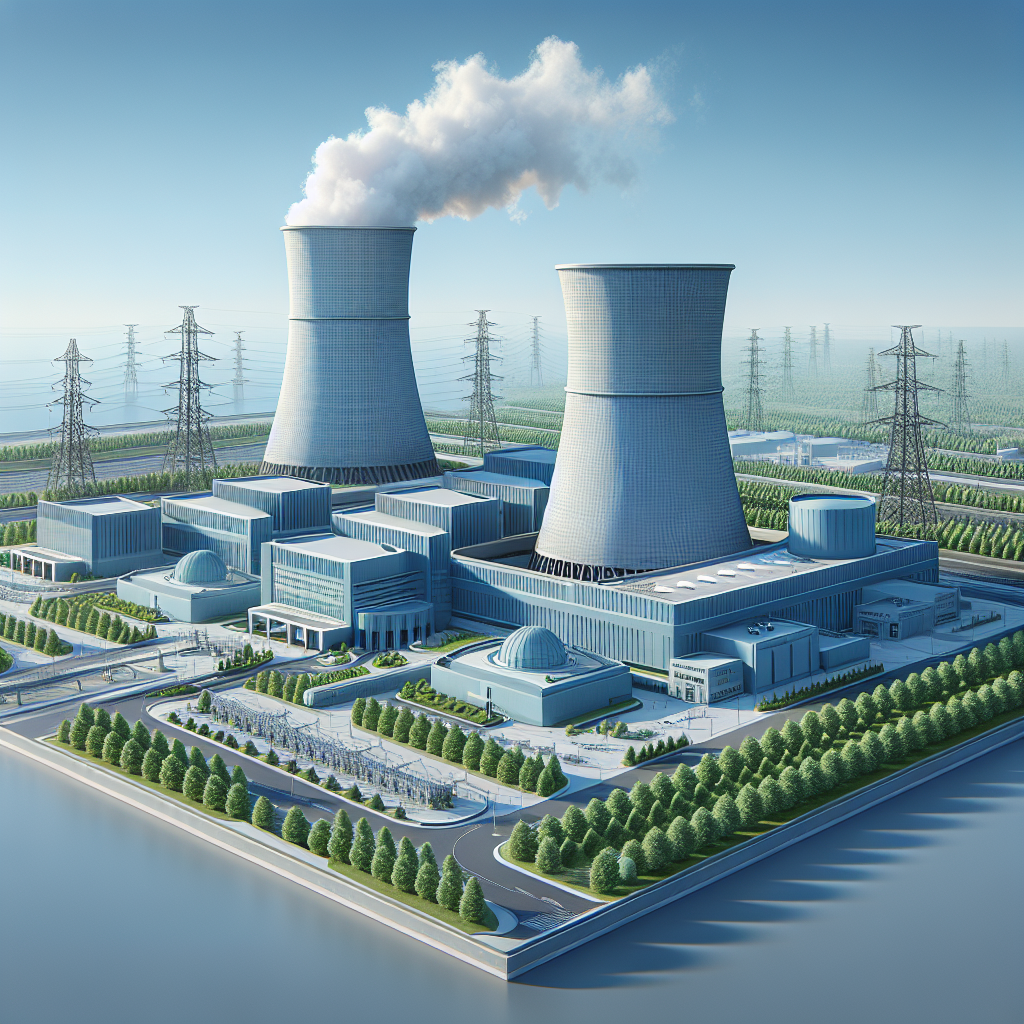At the United Nations Climate Change Conference (COP29) in Dubai today, the International Atomic Energy Agency (IAEA) and the European Bank for Reconstruction and Development (EBRD) signed a new Memorandum of Understanding (MoU), deepening their collaboration in the nuclear energy sector. This landmark agreement moves beyond traditional nuclear safety concerns and focuses on helping countries achieve their net zero goals through sustainable nuclear energy solutions.
IAEA Director General Rafael Mariano Grossi and EBRD President Odile Renaud-Basso endorsed the partnership, emphasizing the critical role of nuclear energy in decarbonizing electricity production and hard-to-abate sectors such as industry and transport. The collaboration aims to leverage nuclear energy's potential as a clean and resilient energy source, supporting countries in their transition to low-carbon economies.
“Together we are not only building on years of successful cooperation in nuclear safety but we are opening new doors for capacity building, clean energy, and economic resilience. Partnering with financial institutions like the EBRD is essential to unlocking the investments needed for a low-carbon future, ensuring nuclear energy’s unique benefits are accessible, safe, and sustainable for all,” said Director General Grossi.
Expanding Nuclear Capacity and Policy Support
Under the new MoU, the IAEA and the EBRD will coordinate efforts to support countries in developing energy policies, strategies, and governance frameworks aimed at achieving net-zero emissions. This partnership will focus on countries with potential for nuclear energy, helping them build the necessary infrastructure and financial frameworks for clean energy transition.
The initiative will also prioritize gender equality in the nuclear sector. Programs such as the IAEA’s Marie Sklodowska-Curie Fellowship and the Lise Meitner Programme will continue to empower women and foster diversity in the nuclear energy workforce. By strengthening both the technical and social aspects of the nuclear sector, this partnership aims to create a more inclusive and sustainable future.
Support for Nuclear Safety and Decommissioning
A key focus of the collaboration is improving nuclear and radiation safety throughout the nuclear energy lifecycle. The partnership will assist countries in managing radioactive waste, addressing environmental releases, and supporting the decommissioning of nuclear facilities. This includes ongoing initiatives such as the safe decommissioning of the Chornobyl Nuclear Power Plant and the management of radioactive waste in Ukraine's Exclusion Zone.
The IAEA and the EBRD have already worked together in the Coordination Group for Uranium Legacy Sites (CGULS), focusing on environmental remediation in Central Asia and supporting nuclear decommissioning in countries such as Bulgaria, Lithuania, and Slovakia.
Building on Atoms4NetZero
The new MoU also builds on the Atoms4NetZero initiative, launched at COP27 in 2022 in Sharm El Sheikh, Egypt. Atoms4NetZero provides policymakers with technical expertise and scientific evidence on nuclear energy's potential role in achieving net-zero emissions. The collaboration between the IAEA and the EBRD will help advance this effort, offering decision-makers the tools to integrate nuclear energy into broader climate strategies.
Continuing Support for Nuclear Decommissioning
Both organizations are committed to supporting nuclear decommissioning and environmental remediation in Eastern Europe, Russia, and Central Asia. In addition to their work at Chornobyl, the IAEA and EBRD are engaged in technical advice and support for the decommissioning of nuclear power plants in other regions, highlighting the importance of international cooperation in addressing nuclear legacy issues and ensuring safe, sustainable solutions for the future.
This enhanced collaboration between the IAEA and the EBRD is a crucial step in supporting the global energy transition, harnessing the potential of nuclear energy while ensuring safety, sustainability, and economic resilience.











